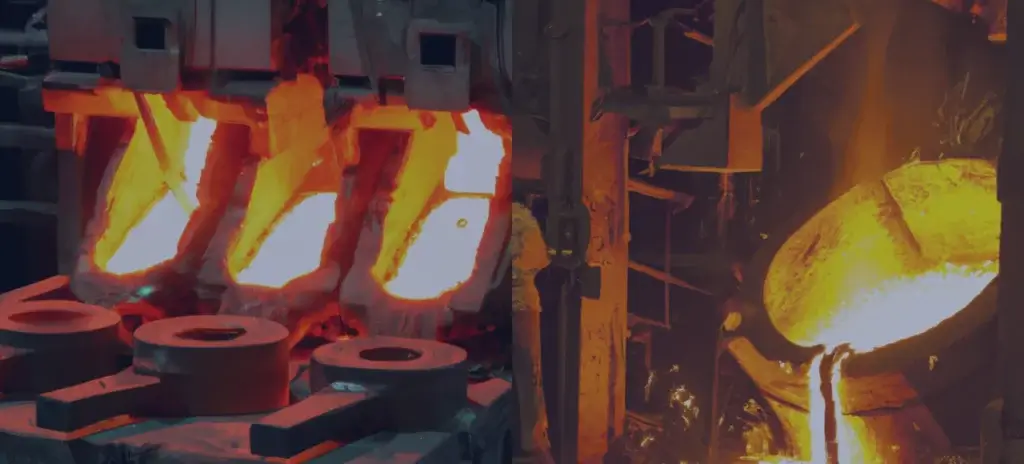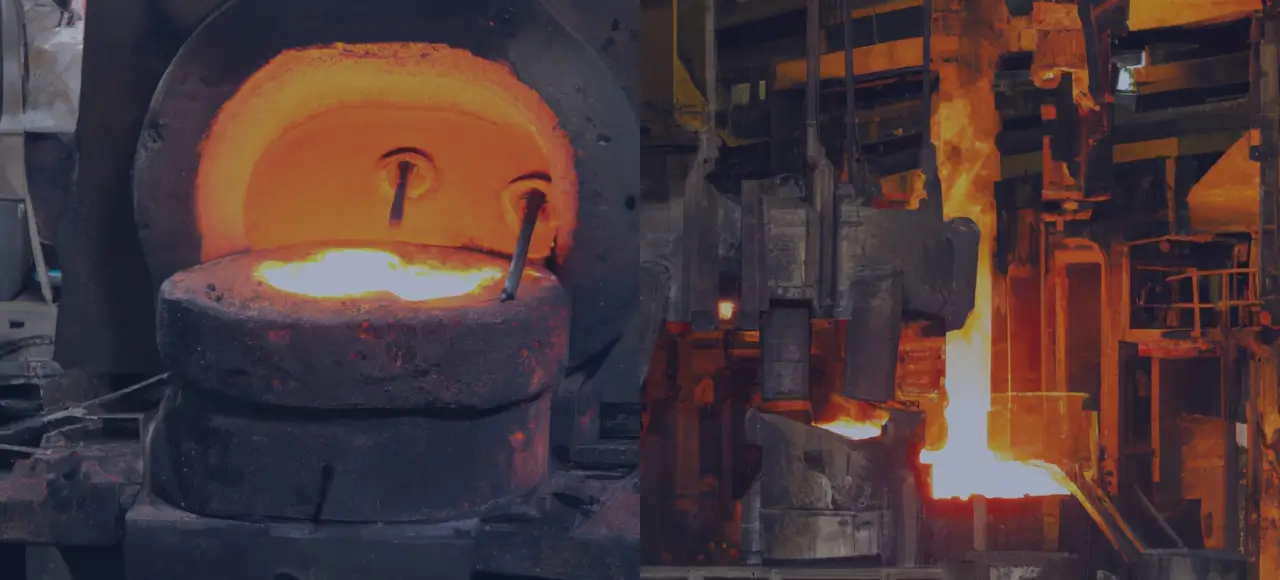Casting and forging are two of the most critical processes in metalworking. Casting is a process of pouring molten metal into a mold while forging is a process of transforming metal into shapes through hammering or pressing. Both processes require specialized equipment, tools, and skill to produce quality products. Casting and forging companies can create various shapes and sizes with precision and accuracy. With the help of these companies, manufacturers can easily make components out of a wide range of metals, including aluminum, steel, and more. In this article, we will discuss the term ‘casting and forging’ means to, and the best casting forging companies available today in industrial manufacturing.
What Does The Term ‘Casting And Forging’ Refer To?
Castings and forgings are metal parts produced in a foundry or forge. Examples of castings and forgings include automotive crankshafts, bearing caps, valve bodies, axle tubes, carriers, gear blanks, and flanges. Foundries and forges are companies that produce metal objects. Foundries make castings, shaped pieces of metal that have been made using a mold, and forges make forgings, which are shaped pieces produced by heating a piece of metal in a fire. Forged products often need clarification with cast products. Although they can be similar, the two processes have some distinct differences.


Key Differences Between Forging & Casting Process
Casting is a manufacturing process used to create a mold, which is then filled with molten metal. The molten metal is poured into the mold, where it cools and hardens into the shape of this vessel. Forging (cold and hot) and stamping are commonly used techniques in manufacturing forges.
Casting is made by manipulating molten metal, whereas forging is made by applying thermal and mechanical energy to solid metal. There are many casting processes, including mold, sand, gray iron, investment, rapid, and die casting. Whereas categories of forging includes warm, cold, drop, impression, and press forging.
Metals can be cast and forged. Steel, iron, aluminum, stainless steel, and titanium are commonly used for casting and forging. Materials used exclusively for casting include copper, tin, magnesium, and zinc. In addition to casting in metal, the casting process can also be used to create sculptures from plaster, concrete, synthetic resin, and other chemically curable materials.
Castings and forgings have their advantages and disadvantages. For example, castings generally have no size or weight limits, but those factors usually limit forgings. In addition, the casting process allows for the production of much more complex and intricate parts. Because metal melts during casting, manufacturers add other metals to the mix when creating new parts. This rarely happens with forgings.
Forgings have a grain structure that gives them high wear resistance and mechanical strength. Forged parts are often as strong as costly alloys, which means they can be used to make parts that would otherwise be cast. Forged parts also prevent several problems encountered by castings, including voids and porosity. It is challenging to state which manufacturing process–casting or forging–is cheaper in the long run. Each has its advantages and disadvantages.
Best Casting Forging Companies US
- Zetwerk : Zetwerk is a leading casting and forging company in the US. Their products are renowned for their superior quality, strength, and durability. The experienced team of experts is dedicated to providing clients with the best possible solutions using the latest technologies and techniques. Zetwerk is committed to delivering high-quality products that meet or exceed customer requirements while keeping costs low. It is a one-stop shop for all your casting and forging needs, whether you require precision parts, prototypes, or large-scale fabrication projects. With a commitment to excellence, Zetwerk can offer you the best casting and forging services in the United States.
- ForceBeyond, Inc. : ForceBeyond has manufacturing resources that are spread across the globe. With facilities in the United States, mainland China, and Taiwan, they have proven processes incorporating the latest manufacturing technology and quality assurance procedures. They are experienced in working with world-class manufacturers of parts and components. They provide investment casting, sand casting, die casting, cold forging, hot forging, and precision CNC machining.
- Precision Castparts Corp. : Precision Castparts Corp. (PCC) manufactures complex metal components and products. It serves the power, aviation, and general industry markets. PCC is an industry leader in producing significant, complex structural investment & airfoil castings and forgings for aerospace applications. The company also makes industrial gas turbines and is a leading manufacturer of aerodynamically cast products. PCC produces seamless pipes, fittings, and sheet metal products for the power industry; forgings and sheet metal products for oil and gas companies; commercial aircraft structures; and metal alloys for foundries and forging companies.
- All Metals & Forge Group, LLC : All Metals & Forge Group, LLC offers various services to customers in the aerospace, defense, petrochemical, and other industrial sectors. They manufacture components using open die forging, ring rolling techniques, and seamless rolled rings. All Metals & Forge Group works with various metals and produces forgings for AMS, AISI, ASTM, Boeing, GE, and others to meet industry specifications.
- American Axle & Mfg, Inc. : American Axle & Manufacturing, Inc., an American company specializing in the driveline, metal forming, and casting technologies for the automotive industry, offers various services, including casting and forging. These services are integral to the production of driveline systems and components. AAM provides casting and forging services worldwide to original equipment manufacturers (OEMs). The company’s casting services include sand casting, investment casting, and high-pressure die casting; its forging services include open-die, warm, hot, and other forgings.
In conclusion, casting and forging companies play a significant role in manufacturing by providing high-quality components and systems. They use advanced technologies and techniques to create intricate and complex metal products used in various industries, including automotive, aerospace, and construction. Casting forging companies produce essential services that drive the production of high-quality goods. The industry’s growth continues to be driven by the increasing need for sophisticated components in various sectors and advanced technologies.






